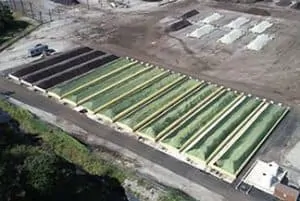

 As governments, industry, and citizens prioritize reducing greenhouse gases, the push for more organic landfill diversion strengthens. With this decarbonization strategy, more regions turn to composting as an alternative destination for green and food waste. They recognize its potential to extend landfills’ life, tackle climate, and keep valuable resources in circulation.
As governments, industry, and citizens prioritize reducing greenhouse gases, the push for more organic landfill diversion strengthens. With this decarbonization strategy, more regions turn to composting as an alternative destination for green and food waste. They recognize its potential to extend landfills’ life, tackle climate, and keep valuable resources in circulation.
Still, agencies are looking closer at associated emissions, particularly volatile organic compounds (VOCs), ammonia, and toxins. As compost operators expand their footprint, they will face more regulations around these and other air emissions that can impact permitting.
Pat Sullivan takes his readers through the standards where they exist and as they are evolving. The article discusses air permit requirements and rules specific to compost in those states and districts taking the lead. Pat covers questions to ask and where to go for answers, then explores preparation for more robust standards that, inevitably, are coming.
Originally published in Waste Advantage, September 2023. Use the icons at the page bottom to share this article.
Associated Resources: